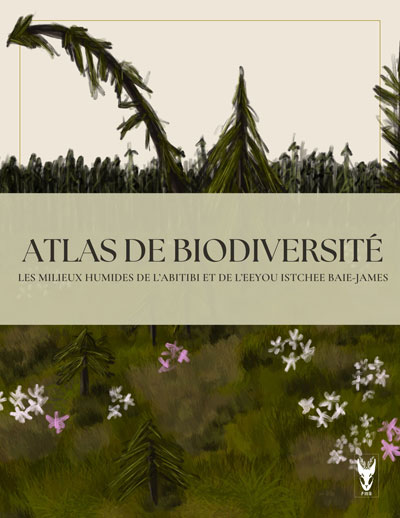
Boris Merlain Djousse Kanouo
Doctorat
Production et utilisation du biochar pour l'amendement des oxisols tropicaux
Université Laval
Directrice: Alison Munson
Codirectrice: Suzanne Allaire
Contact
Département de Foresterie et Sciences du Bois
Pavillon Abitibi-Price, local 4171
418-656-2131 poste 3950
Formation académique
- PhD en sciences forestières, Université Laval: 2012-2017.
- MSc. en Gestion des ressources en eau, Université de Dschang (Cameroun): 2008-2010.
- Ingénieur de conception, filière Agronomie, Option Génie Rural, Université de Dschang (Cameroun): 1999-2004.
Domaine de recherche
Technologies environnementales (Biomasse/biochar, Énergies renouvelables, Sciences de l'eau, phytoépuration, phytoremédiation).
Stages
- 2014 Stage sur la Pédagogie Universitaire appliquée à la gouvernance forestière (Université de Dschang)
- 2009 Stage sur l’approche écosystèmes et santé humaine http://www.copes-aoc.org/
 (Bénin)
(Bénin)
- 2006 Stage sur les techniques de production du biogaz et de l’énergie éolienne http://craftskillseastafrica.com/
 (Kenya)
(Kenya)
- 2006 Stage sur les technologies des petites centrales hydro-électriques.http://www.inshp.org/default_2.asp
 (Chine)
(Chine)
- 2005 Stage sur les techniques d'analyse des eaux usées et leur traitement par des méthodes naturelles au “Waste water research Unit” à l’Université de Yaoundé 1 (Cameroun)
- 2005 Stage en industrie "African distilling Company" (Mbandjock, Cameroun)
- 2004 Stage sur les outils et techniques de construction en mécanique agricole au Laboratoire de Génie Agricole, Université de Dschang (Cameroun)
- 2003 Stage de découverte d'une exploitation agricole (Mbandjock, Cameroun)
- 2002 Stage de découverte du milieu rural (Baladjeutsa, Cameroun)
Résumé de la thèse en Anglais
In recent years, the interest of the scientific community has shifted increasingly towards the production and use of biochar in agriculture as an amendment. In addition to being an efficient means of recovering agricultural and forestry waste, it could contribute to restoring the fertility of tropical oxisols and thus maintaining the productivity of tropical agricultural ecosystems. As a result, this restoration could help in decreasing the pressure on rainforests, that is, deforestation for agricultural production. This field study was carried out in the West region of Cameroon in Central Africa. Its aim was to produce, characterize and test the effect of two biochars from agricultural and forestry origin on the physico-chemical properties of an oxisol and on maize production and maize nutritional equilibrium. Firstly, we constructed locally a retort kiln that improves on the currently-used technology (gas recycling, smoke and pollution reduction, higher biochar yield). The two biochars made from local residues (eucalyptus bark and corn cobs) using this improved kiln at 300 ° C, were characterized using ASTM, IBI and EBC methods. The field experiment included 30 irrigated plots of 4 m × 4 m each, in a split plot design. Two soil tillage modes: flat plowing and furrow-ridges, with three replicates were compared with four biochar treatments, incorporated to soil at the beginning of the first production period. The basic treatment in all plots was the recommended mineral fertilizer rate for maize production in the area: 200 kg NPK +100 kg N. Biochar was applied at 15 t ha-1. Maize yield, soil physico-chemical properties and leaf nutritional equilibrium were assessed, six and twelve months after application of the biochar. The results were analyzed using SAS GLIMIX procedure followed by the Tukey HSD multiple comparison test when necessary. Results suggest the following conclusions: Eucalyptus bark and corncob biochars fulfill most of the criteria definition proposed by IBI and EBC for biochars. According to IBI, these are class 3 biochars (10 ≤ Corg ≤ 30). The new pyrolyser can thus be used to produce good quality biochar from common residues in Cameroon with reduced gas emissions. The application of biochar under our conditions has had little effect on the physicochemical properties of the soil; however, the significant increase in pH (0.3 and 0.5 units) and soil organic carbon (0.4 %) makes this technology acceptable for the global program "4 per 1000" initiated by France after Cop 21. Foliar nutritional analysis revealed a significant increase in the Mg and Ca content of maize plants in biochar amended plots; the yield per hectare of maize increased by 54 % during the first production period and by 51 % during the second in the biochar amended plots compared to the control. This increase in yield is otherwise translated into 25 % avoided deforestation due to agriculture. All these results indicate that biochar could be a valuable tool to face the challenges of deforestation and climate change in the humid tropical zones, through sustainable agricultural production.
Publications
Articles scientifiques et livres
- Fonkou T., Fonteh M. F., Djousse Kanouo B. M., Akoa A., 2010, Performances des filtres plantes de Echinochloa pyramidalis dans l'épuration des eaux usées de distillerie en Afrique subsaharienne, Tropicultura. p. 69-76.vol. 28 no 2 - Texte PDF
- Djousse K.B.M.: 2011, Gestion de l’eau par bassin versant: Une question de santé publique, EUE, 116 pages. ISBN 9786131579349 / 6131579342
- Djousse K.B.M., Allaire, S.E. & Munson, A.D. 2017 : Quality of Biochars Made from Eucalyptus Tree Bark and Corncob Using a Pilot-Scale Retort Kiln. Waste and Biomass Valorization, 8 (41), 1-11. https://doi.org/10.1007/s12649-017-9884-2
 ,
,
- Djousse K.B.M., Allaire S.E., Munson A.D., 2017: Biochar improves maize nutritional status and yield under two soil tillage modes. IJSR, 6 (10), 1-7. https://www.ijsr.net/archive/v6i10/ART20176493.pdf

Affiches et communications
- Promouvoir les technologies des énergies renouvelables pour réduire la pauvreté dans les communautés rurales du Bamboutos, Province de l’Ouest Cameroun
 .
.
- http://www.slideserve.com/lea/by-boris-merlain-djousse-k-engineer

- http://www.menola.info/index.php?option=com_content&view=article&id=690:journee-mondiale-de-leau-2012&catid=135:economie-et-developpement&Itemid=286#comments

- http://www.cef-cfr.ca/uploads/Colloque/Colloque2015_BorisMerlainDjousseKanouo.pdf

- http://www.cef-cfr.ca/uploads/Colloque/Colloque2016_BorisMerlainDjousseKanouo.pdf

- https://www.researchgate.net/publication/307891130_Effets_du_biochar_sur_les_proprietes_physiques_d%27un_oxisol_tropical

- http://biochar-us.org/sites/default/files/presentations/1.2.3%20Merlain%20Djousse%20kanouo%2C%20Boris.pdf











